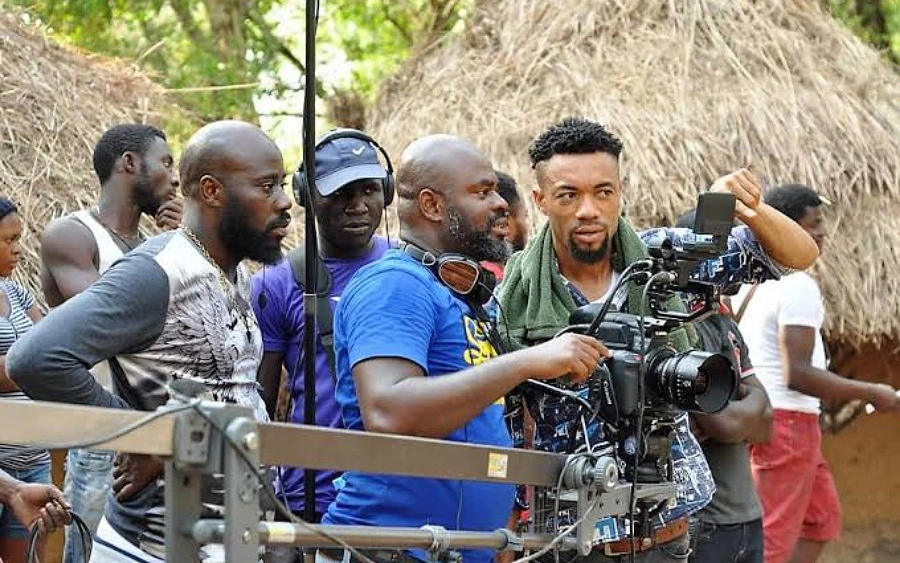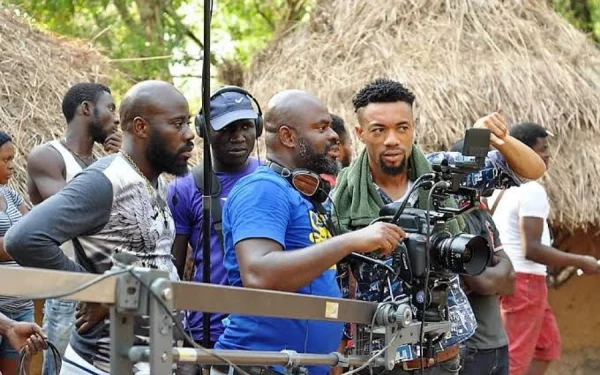From the electrifying rhythms of Afrobeats to the captivating styles of Nigerian fashion, Nigeria’s creative industry is on its way to making a significant impact on the world stage. In this article, you’ll be exposed to snippets of Nigeria’s creative economy and the potential that lies within, it as we explore the three of the most dynamic sectors of Nigeria’s creative economy.
Read more about Economy
Entertainment
The Nigerian entertainment industry, a dynamic force driving the country’s cultural export, has captured the world’s attention with its infectious beats and engaging storylines. Afrobeats, a fusion of traditional Yoruba music with elements of jazz, funk, and highlife, has taken the world by storm. Artists like Wizkid, Davido, and Tiwa Savage have captivated global audiences with their unique blend of melody, rhythm, and storytelling. In 2021, Afrobeats became the most streamed genre on Spotify, dethroning hip-hop after six years of dominance. This global recognition has propelled Nigerian artists onto the world stage, with headline performances at major international festivals like Coachella, Glastonbury, and the One Music Festival and also winning the coveted Grammy award.
Beyond Music
Nollywood, Nigeria’s prolific film industry, is the second-largest in the world, producing over 2,500 films annually. Nollywood films are known for their relatable stories, amazing performances, and focus on themes that resonate with audiences across Africa and the diaspora. With its increasing access to global distribution platforms like Netflix and Amazon Prime Video, Nollywood is gearing up for even greater success in the years to come. Nigerian films are not only entertaining but also serve as a powerful medium for social commentary, addressing issues such as gender inequality, corruption, and the struggles of everyday life.
Sign up for the Connect Nigeria daily newsletter
Fashion
The Nigerian fashion industry is rapidly gaining international recognition. Nigerian designers are showcasing their creativity on runways around the world, incorporating vibrant prints, intricate designs, and bold silhouettes into their collections. Designers like Lisa Folawiyo, Kenneth Ize, and Maki Oh have garnered global acclaim for their innovative use of African fabrics, traditional motifs, and modern tailoring techniques. Their designs have graced the red carpets of major international events, worn by celebrities like Beyoncé, Rihanna, and Michelle Obama.
Design
The Nigerian design industry, encompassing architecture, interior design, product design, and graphic design, is contributing to the country’s aesthetic evolution. Nigerian architects are designing innovative structures that blend modernity with cultural elements, redefining urban terrains and shaping a unique architectural identity. Architects like Kunlé Adeyemi and Teju Ajayi have garnered international recognition for their designs that combine functionality, sustainability, and a deep understanding of Nigerian culture. Their work is showcasing Nigeria’s architectural prowess and contributing to a more sustainable urban future. Interior designers are creating spaces that reflect the warmth and vibrancy of Nigerian culture, incorporating traditional elements into modern designs. They are transforming homes, offices, and public spaces into vibrant expressions of Nigerian identity.
Register to attend the CN Business Mixer
Product designers are developing innovative solutions that address local needs while also showcasing Nigerian ingenuity and craftsmanship. From furniture and lighting to household appliances and technology products, Nigerian designers are creating products that are both functional and aesthetically pleasing. Graphic designers are using their skills to create visually compelling branding and communication that promotes Nigerian businesses and culture. They are playing a crucial role in shaping the visual identity of Nigeria’s creative industries and helping them reach a global audience.
Final Thoughts
Nigeria’s creative economy, with its diverse industries and talented individuals, possesses immense potential to drive economic growth, create employment opportunities, and enhance the country’s global standing. The government, private sector, and creative professionals must work together to foster an environment that nurtures talent, invests in infrastructure, and provides access to global markets. The future of Nigeria’s creative economy is bright, filled with the promise of transformative cultural productions, economic growth, and global recognition. By embracing its creative potential, Nigeria can redefine its narrative, showcase its rich cultural heritage, and inspire the world with its unique blend of artistic expression and entrepreneurial spirit.
Got a suggestion? Contact us: [email protected]


